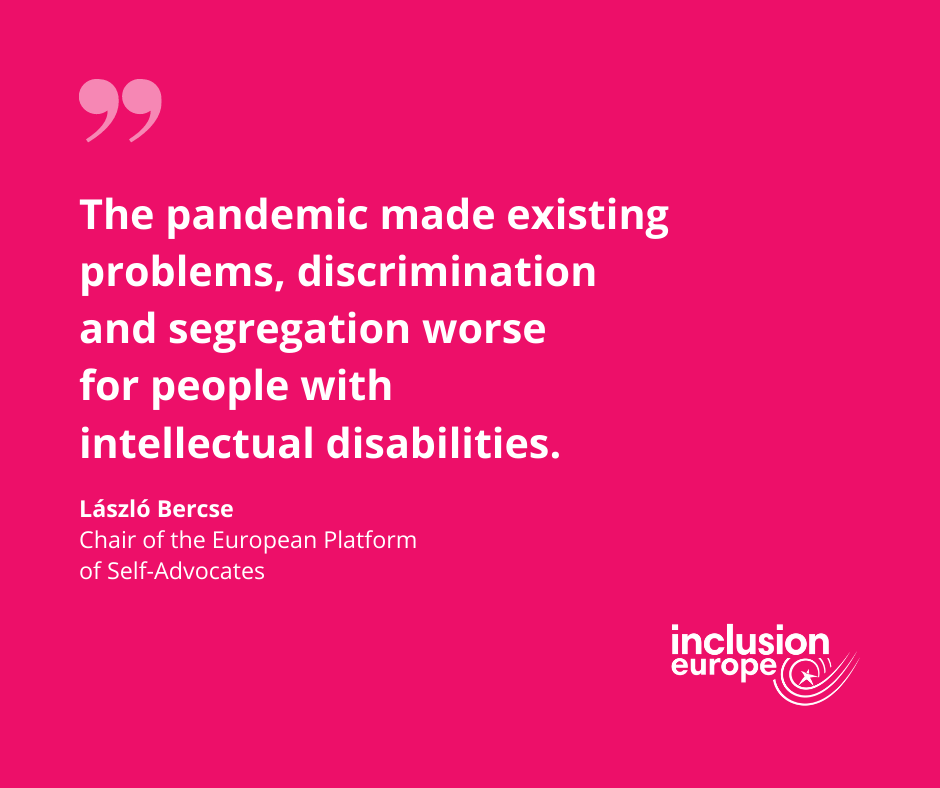Inclusion Europe has published a new report on how the coronavirus and the measures implemented in response to the pandemic have impacted on the rights and lives of people with intellectual disabilities.
It makes for grim reading, finding that the discrimination and neglect faced by those with intellectual disabilities worsened during the pandemic.
Politico.eu
The Inclusion Europe report (.pdf) makes for 55 grim pages indeed.
Grim, but very relevant for the recovery plans the EU and national governments are preparing.
Neglect and discrimination
Here is some of what we witnessed happen in Europe:
- People with intellectual disabilities dying at a rate 3 times higher that of general population in England. What about other countries? Especially those with high numbers of people in large residential institutions?
- Health care being denied in individual cases. Attempts to introduce triage protocols discriminating against people with disabilities in general.
- People in residential “care institutions” left in isolation. Some of them in a single room for 6 months without any opportunity to leave the room at all.
- Large numbers of people in “care institutions” not provided with health care when diagnosed with Covid. One example: 242 residents (of 369) in a psychiatric institution infected; only the staff admitted to a hospital.
- Mortality among “care institutions” residents doubled in some countries.

There are countless other cases of neglect and discrimination to which people with intellectual disabilities and families have been subjected during the pandemic. We’ve documented them here.
Not new – multiplied
What is important to keep in mind thought is that there is nothing new about these issues.
The Coronavirus pandemic intensified, magnified, multiplied the segregation and discrimination people with intellectual disabilities have been facing for decades.
Recovery funds must support disability inclusion
It is imperative policy and decision-makers consider this when deciding about how the recovery money is going to be spent.
Organisations of people with disabilities and support providers undertook huge amount of work during pandemic:
- Provided support and care.
- Filled so many gaps in how governments informed the public.
- Advocated to uphold rights of people with intellectual disabilities and families.
Governments counted on them in the time of crisis. They must turn to them when distributing money from the recovery funds.

People with intellectual disabilities were let down during the pandemic, suffering higher death rates, being isolated in institutions, discriminated in access to healthcare, losing their education, employment, or support.
The least the EU and governments can do now is ensure the lost lives and the suffering were not for nothing. That the future generations benefit from changes stemming from these hard-bought lessons.
Read the Inclusion Europe report (.pdf) in full.
First published on LinkedIn 5 December 2020.
